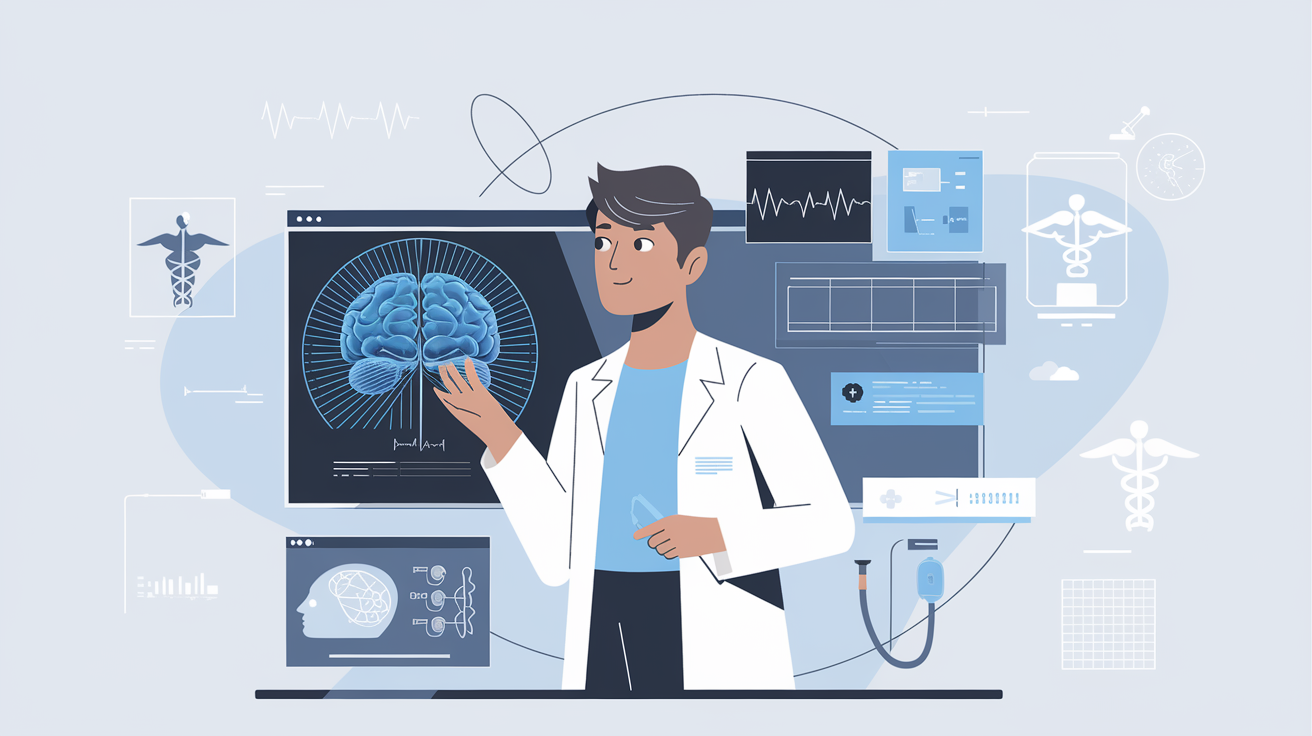New Year, New Healthcare Challenges: What Premeds Need to Know About AI in Medicine
As we step into a new year, the healthcare industry is facing exciting yet complex challenges, with artificial intelligence (AI) at the forefront of innovation. For premed students, understanding AI’s impact on medicine is crucial for staying ahead in a rapidly evolving field. Here's what you need to know about AI in healthcare and how it might shape your future medical career.
The Rise of AI in Medicine
AI is no longer a futuristic concept; it’s already transforming healthcare in various ways:
Enhanced Diagnostics: AI-powered algorithms can analyze medical images, detect anomalies, and provide early diagnosis with remarkable accuracy.
Personalized Treatment Plans: Machine learning models can tailor treatments based on a patient’s genetic makeup and medical history.
Predictive Analytics: AI can identify patterns and trends to anticipate disease outbreaks and patient deterioration.
Opportunities for Premeds
AI is opening up exciting opportunities for those entering the medical field:
1. Expanding Career Options
Premed students should consider roles that intersect with AI, such as:
Medical data analysis and health informatics.
AI-assisted research and clinical applications.
Telemedicine and remote patient monitoring.
2. Learning AI Integration
Understanding how to leverage AI in practice will be essential:
Familiarize yourself with AI-driven tools used in patient care.
Stay updated on emerging AI technologies that can improve diagnostics and treatment.
Participate in courses or workshops focused on AI applications in healthcare.
3. Ethical and Human Considerations
AI can improve efficiency, but ethical challenges remain:
Ensuring patient data privacy and security.
Balancing AI decision-making with human judgment.
Addressing potential biases in AI algorithms.
Challenges Facing AI in Medicine
While AI offers many benefits, it also presents challenges that premed students should be aware of:
1. Data Security and Privacy
Healthcare data is sensitive, and AI systems require vast amounts of it. Ensuring compliance with HIPAA and other regulations is crucial to prevent data breaches.
2. Physician-AI Collaboration
AI is designed to assist, not replace, healthcare professionals. Effective collaboration between AI and physicians will require clear communication and trust in technology.
3. Training and Adaptation
Medical schools are beginning to incorporate AI into curricula, but adapting to this rapidly evolving technology remains a challenge for future doctors.
Preparing for the AI-Driven Future
Premed students can take proactive steps to prepare for the AI-driven future by:
Staying informed through medical journals and online resources.
Seeking mentorship from professionals experienced in health tech.
Engaging with AI-based tools like King of the Curve to optimize their study approach.
The KOTC Approach: Simplifying Success for Every Student
At King of the Curve, we believe learning should be both effective and enjoyable. With over 100,000 downloads and recognition in Forbes 30 Under 30, we support students from all backgrounds in reaching their academic and career goals.
Our Core Beliefs
Simplified Learning: We make complex medical topics easy to understand with interactive tools.
Committed to Inclusion: 35% of our users are from underrepresented backgrounds, and we strive to create equal opportunities for all.
Future-Proof Knowledge: Our resources help students retain concepts that will benefit them throughout their careers.
Conclusion
AI is revolutionizing healthcare, and its role will only continue to grow. Premed students must equip themselves with the knowledge and skills to navigate this evolving landscape. By embracing AI, staying informed, and using modern study tools, you can position yourself for success in the future of medicine.
Frequently Asked Questions (FAQs)
-
No, AI is designed to assist healthcare professionals, not replace them.
-
Stay updated on AI developments and integrate AI-driven study tools into your preparation.
-
Privacy, bias in algorithms, and the importance of human oversight are key considerations.
-
Yes, many programs are beginning to introduce AI-related topics into their coursework.
-
Our platform provides AI-driven personalized study plans and resources to enhance your learning experience.


